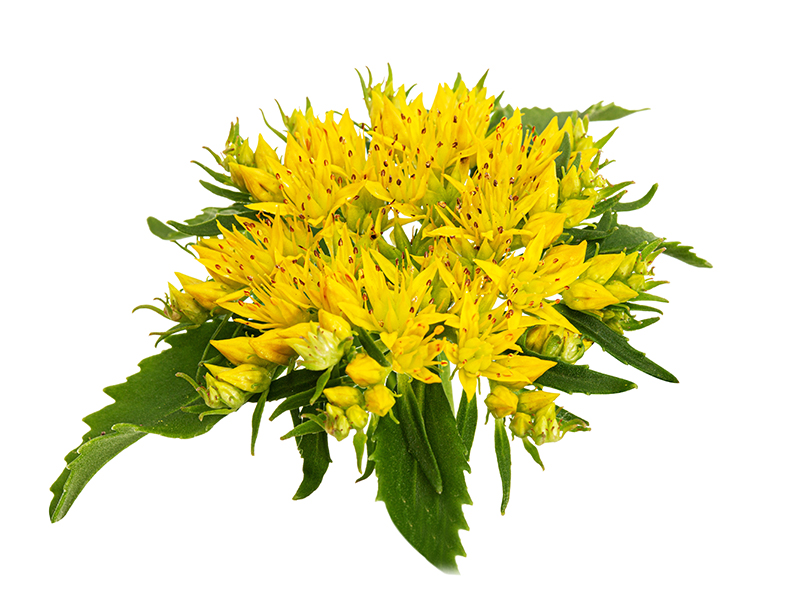Rhodiola Genera, Rhodiola Rosea
Rhodiola rosea is a supplement that contains a medicinal plant. The plant is native to Europe, Asia, and North America. Rhodiola rosea is used to treat depression, fatigue, loss of appetite, insomnia, and other problems. Because it can help decrease symptoms of stress, such as anxiety and irritability, it contributes directly to improving the quality of sleep.
- Origin: Plant Based
- Source: Itself
- Type: Herbs, Roots & Barks
- Age Range: Adults, Seniors
- Toxicity: There is no evidence of toxicity until now
- Outcomes: Sleep, Sleep Latency, Early Awaking, Stress, Anxiety, Depression

What are Rhodiola Rosea benefits?
Rhodiola rosea is a plant used in traditional medicine for a wide spectrum of conditions. Its effects on sleep are well documented. Rhodiola rosea increases the duration and quality of sleep, and reduces the time it takes to fall asleep. Rhodiola rosea also improves cognitive function and increases energy during the day, and is useful for improving productivity.
Table of relations
Rhodiola Rosea and Sleep
Sleep is a very important physiological process, as it regulates the body's functions. It is responsible for promoting / facilitating energy conservation, synthesis and secretion of hormones and proteins, learning and memory through brain changes. Sleep is mainly driven by the circadian cycle, which involves exposure to light, hormones such as melatonin, and hypothalamic activity. The compounds that help regulate sleep work in different pathways, they can facilitate the process of falling asleep, increase the duration of continuous sleep or improve the quality of sleep.
-
Early Awaking
Early awakening is a form of recurrent sleep disorder and can cause exhaustion. This problem is commonly associated with anxiety and can impair performance the next day, especially in tasks that require focus and attention such as work and physical activities.
-
Sleep Latency
Sleep latency is the time it takes between being awake and actually falling asleep. More importantly than many think, sleep latency is linked to and impacted by the stages of sleep. Fortunately there are natural solutions to improve latency and quality of nightly rest.
Rhodiola Rosea and Anxiety
Anxiety is the body's natural response to stress. It's a feeling of fear or apprehension about what's to come. It can be triggered by a specific situation and not last long - which is very common and ok - or it can be a generalized disorder (which is considered a illness) that can bring harm to everyday life and also cause other conditions like depression.
Rhodiola Rosea and Stress
Stress can be understood as a situation in which the individual is physically or mentally overloaded, which can cause pain, tension and physical injury, as well as emotional fatigue, tiredness, reduced productivity and attention. The substances that help control stress act on hormonal regulation (for example, cortisol), on the circadian cycle and promote physical and mental relaxation.
Rhodiola Rosea and Depression
Depression is a chronic and recurrent psychiatric condition that produces mood changes characterized by deep sadness, mood swings, loss of interest in activities, causing significant impairment in daily life.
Related videos about Rhodiola Rosea
References
Rhodiola rosea is a supplement that contains a medicinal plant. The plant is native to Europe, Asia, and North America. Rhodiola rosea is used to treat depression, fatigue, loss of appetite, insomnia, and other problems. Because it can help decrease symptoms of stress, such as anxiety and irritability, it contributes directly to improving the quality of sleep.
